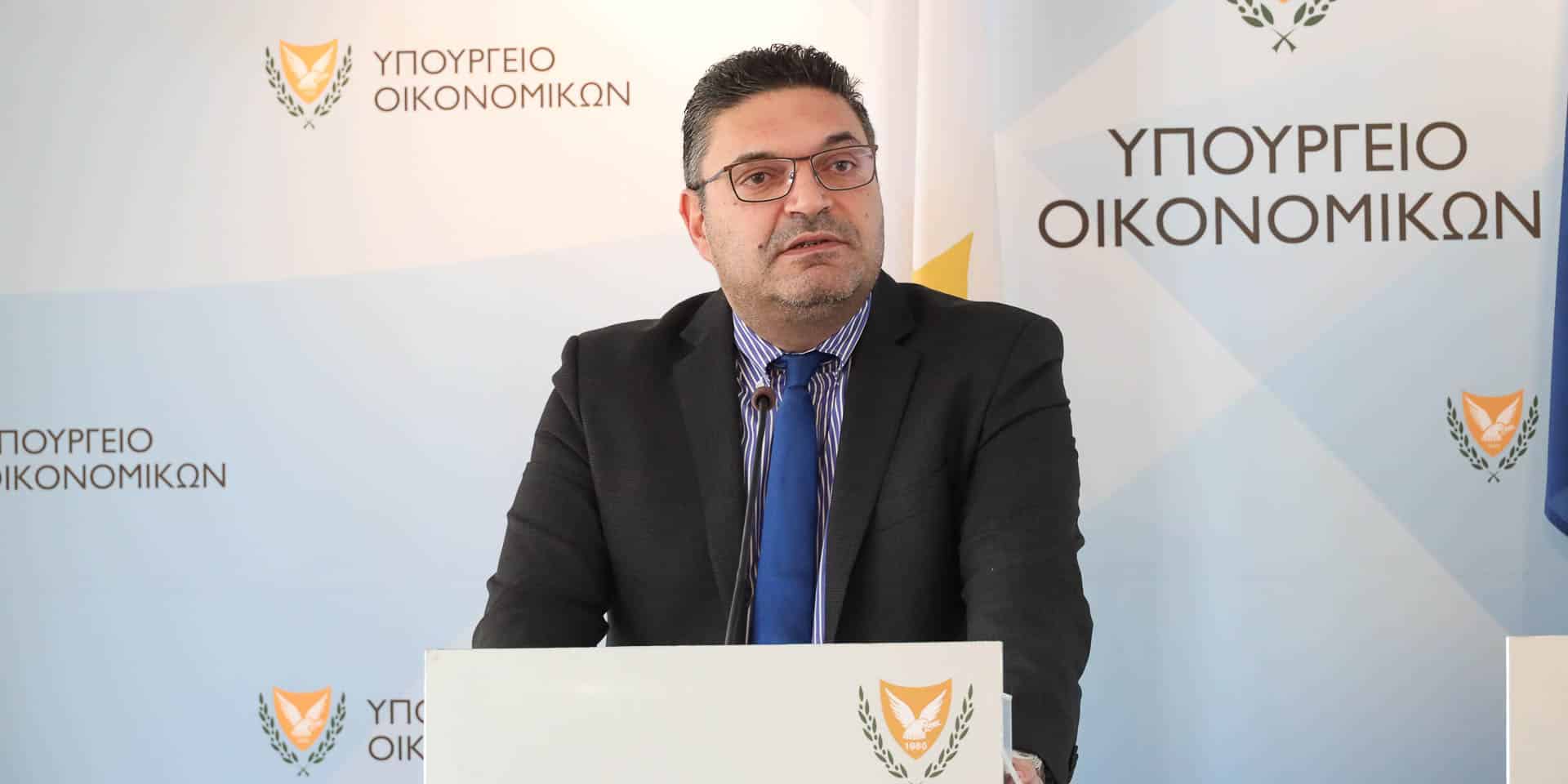Finance Minister Constantinos Petrides on Thursday accused US news network CBS of promulgating old news after its 60 Minutes programme this week pointed the finger at Cyprus as “one of the weakest links” in international efforts to seize the assets of sanctioned Russian nationals.
The CBS report also said the island hosts dozens of active shell companies that can be traced back to Russian oligarchs. The show noted how after the financial meltdown in 2013, Cyprus switched to the golden passports scheme to attract foreign wealth.
It said it learned that at least a dozen of these now sanctioned Russian oligarchs were issued golden passports. The programme interviewed several people including a Cypriot MP.
In a lengthy statement on Thursday, Petrides said much of what was aired on 60 Minutes related to the pre-2013 period “which was valid” but the reality had changed significantly since then.
“The unsubstantiated nature of the statements present a completely opposite picture to the facts currently in force,” he said.
For starters, the minister said, CBS claimed that the exposure of the Cypriot banking system to Russia was €5.6 billion. “In fact, this report does not exceed €1 billion. It is regrettable that such inaccuracies are being told by an international news network,” he said.
“The exposure of our banking sector in Russia is significantly lower than it is often presented in the international press, and close to the level of most European countries.”
By the end of 2021, global loans with exposure to Russia accounted for only 0.8 per cent of total loans.
Petrides said that during the same period, total deposits with exposure to Russia represented only 3.8 per cent (up from 40 per cent in 2013) of total deposits, of which two thirds are interbank deposits, “and despite the fact that a relatively large Russian community lives and operates in Cyprus but has nothing to do with the entities subject to sanctions”.
He said that banking institutions in Cyprus in recent years, interpret and apply “in the strictest way” the framework concerning the identification of customers in relation to the anti-money laundering framework.
This practice was the reason why there were very often complaints from both investors, businessmen and citizens. It has led to the closure of over 80,000 accounts and rejection of account opening requests to thousands of others.
“Many of them even opened accounts in other European countries or certain states in the USA without much difficulty, as noted in a recent report by the European Parliament,” said Petrides. Also, Cyprus does not maintain any reserves of the Central Bank of Russia, “unlike other European countries”, he added.
Cyprus, he added, played a positive role in both the adoption and implementation of sanctions against Russia, despite the adverse effects they would have on the Cypriot economy, “impacts that may have been disproportionate compared to other EU countries”.
From the beginning of the adoption of the sanctions, he said, “information” circulated in the international press showing Cyprus opposing the sanctions. This was fake news that even created unrest outside the Cypriot consulate in Kiev, endangering staff, and forcing the Cypriot Government to make denials, the minister said.
“This disinformation has continued, including rumours of Cyprus’ ineffective implementation of European sanctions, or that Cyprus continues to be a haven for Russian oligarchs,” he added.
Petrides gave a rundown on safeguards in place and all the work that has been done since 2013 in cooperation with the EU and with Moneyval.
The current framework has “unquestionably corrected many of the distortions and mistakes of the past” and is constantly being upgraded by incorporating new regulations depending on international developments.
Reports from the EU and Moneyval show the opposite picture from the one projected of inaction, Petrides said.
“It is particularly regrettable that this image is being reinforced or promoted abroad by politicians at home in their attempt to reap petty party benefits.”
Touching on the issue of ‘golden passports’, the minister said that to date, the Council of Ministers has approved the commencement of the process of depriving 63 persons and 96 of their dependents, a total of 159 persons, of Cypriot citizenship. Of these, 10 persons were under sanctions with 31 dependents.
As far as seizure of Russian assets was concerned, he said that EU sanctions do not include seizures, but the freezing of assets. “The position of the European Union in the relevant committees on sanctions is in fact to avoid any seizures since legally they can lead to claims from the owners or even compensation,” he added.
The same applies to the publication of a nominal list containing personal data, which he said was not permissible under the acquis communautaire on the protection of personal data even of persons who are under the sanctions regime.
“As a government, in the last ten years we have made great progress in the fight against money laundering and transparency, progress, which is internationally recognised,” the minister said.
At the same time, he conceded that mistakes had been made, especially regarding the Cyprus Investment Programme, “which have cost the image of Cyprus abroad”.
“But these mistakes cannot negate the enormous progress that has been made in recent years and which must continue,” he concluded.







Click here to change your cookie preferences